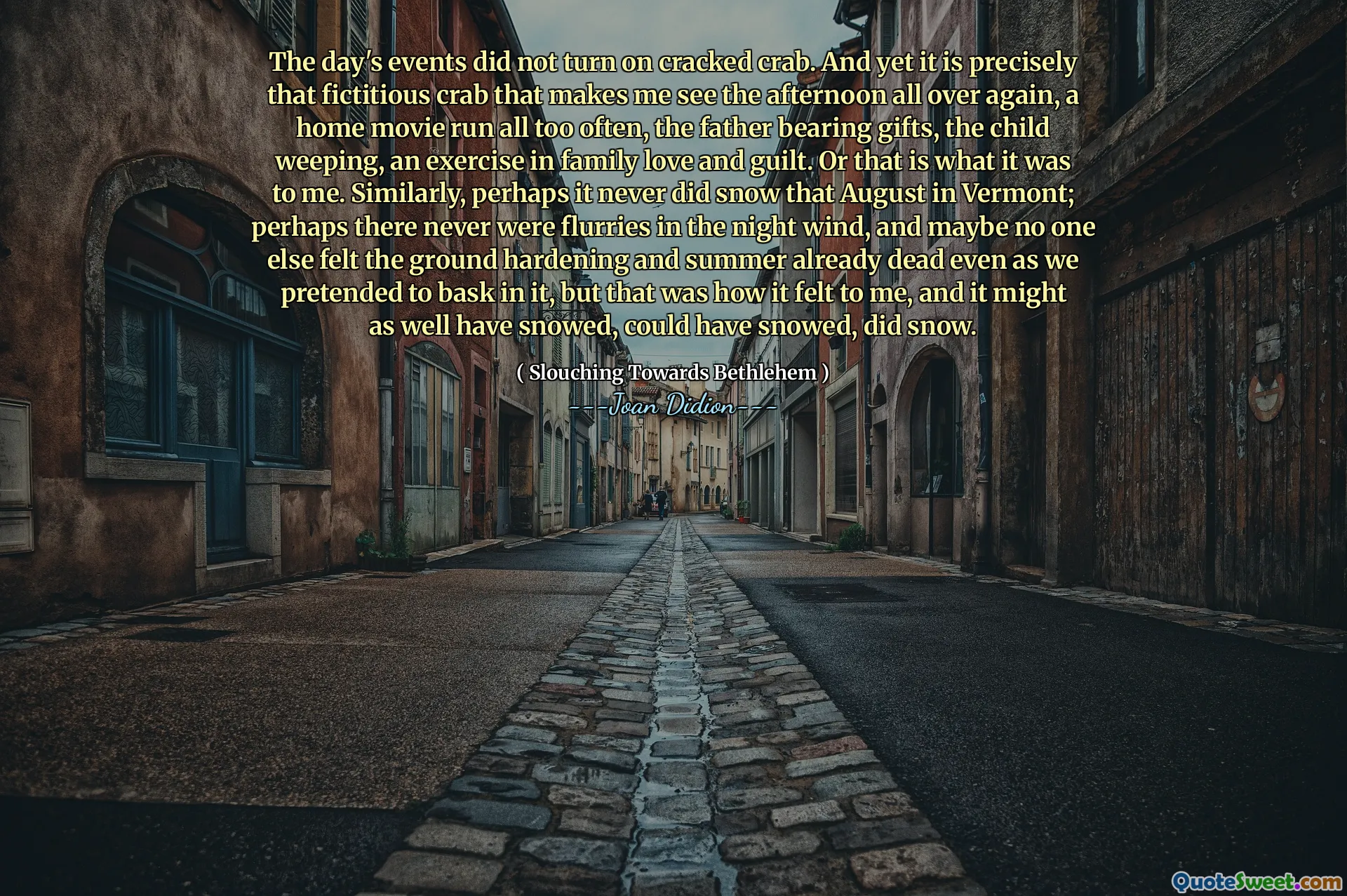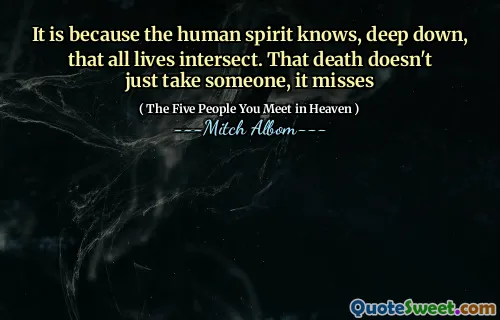
当天的事件没有打开破裂的螃蟹。然而,正是虚构的螃蟹使我再次见到下午,一部家庭电影经常上映,父亲带着礼物,孩子哭泣,对家庭爱和内gui的锻炼。还是那对我来说就是什么。同样,也许那个八月在佛蒙特州从来没有下雪。也许在夜风中从来没有狂热,也许没有人感到地面变硬,即使我们假装晒太阳也已经死了,但这就是我的感觉,而且它也可能下雪了,可能下雪了,下雪了。
(The day's events did not turn on cracked crab. And yet it is precisely that fictitious crab that makes me see the afternoon all over again, a home movie run all too often, the father bearing gifts, the child weeping, an exercise in family love and guilt. Or that is what it was to me. Similarly, perhaps it never did snow that August in Vermont; perhaps there never were flurries in the night wind, and maybe no one else felt the ground hardening and summer already dead even as we pretended to bask in it, but that was how it felt to me, and it might as well have snowed, could have snowed, did snow.)
在琼·迪迪翁(Joan Didion)的“向伯利恒(Bethlehem)倾斜”中,作者反思了记忆和感知的复杂性,这说明了个人经历如何影响我们对事件的理解。她使用虚拟螃蟹的隐喻来传达与家庭互动相关的喜悦和悲伤的混合,这表明即使是琐碎的时刻也可以引起爱与内gui的深刻情绪。因此,这些记忆的意义超越了它们的实际发生,突出了我们情感经历的主观性质。
Didion通过叙述佛蒙特州八月降雪的可能性记忆进一步探讨了这一主题。通过质疑灾难的现实和变化的季节,她强调我们的感觉会扭曲或增强我们的记忆。它是否真正下雪变得无关紧要。她的经验的本质是真正重要的。通过这种方式,她捕捉了记忆的短暂质量及其如何唤起深刻的损失或怀旧感,无论其事实基础如何。











